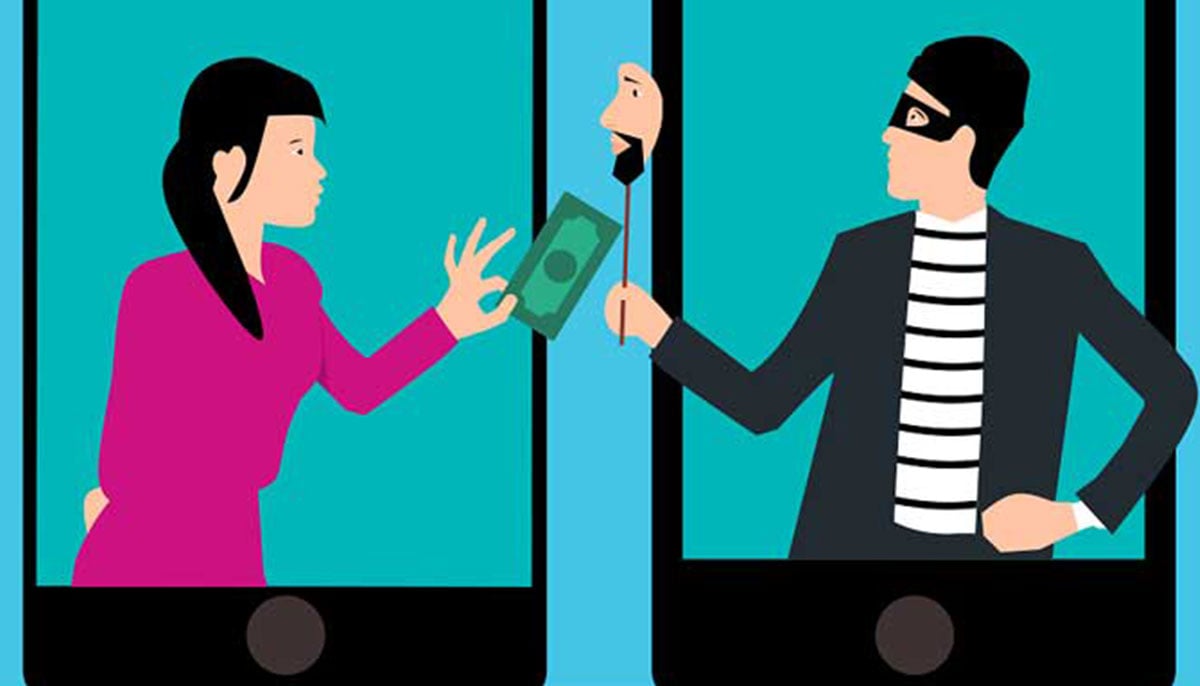From scams to silence: Pakistani women face double victimisation online
Until there is a system-wide change, be it in form of more effective laws and better computer-crime departments, scammers will continue to prevail

Kehkashan Bukhari still remembers the day she lost faith in digital payments. For her, a casual credit card swipe at a Karachi cafe seemed harmless until she woke up the next morning to text alerts showing nearly Rs39,000 charged in three separate transactions.
“I hadn’t bought anything. The message said Apple purchases, but there was nothing in my Apple account. That’s when I realised my credit card details had been stolen,” she recalled.
Bukhari approached her bank, filled out forms, and ultimately lodged complaints with the Federal Investigation Agency (FIA) and the Ombudsman. But the wait, the uncertainty about what to do, and the fear of losing her money left her shaken.

Although the bank did not make her pay her credit card bills, she says the harm is still there. “I cancelled all my online subscriptions. Even now, if I have to enter my card details, I feel a strange fear.”
Her experience is one of a disturbing trend. In different parts of Pakistan, women are falling victim to fraud involving fake parcels and cloned credit cards. And too often, they suffer in silence.
The parcel ploys
To most women, the scam comes in the form of a package, a phone call or an attractive online offer. A homemaker based in Karachi, Mumal Mirza, recalled how a routine day turned into panic. A caller claimed she had a delivery waiting and asked for her order code. Distracted by chores, she revealed her PIN. Moments later, the caller said chillingly: “Check your accounts; everything’s been compromised.”
“I rushed outside to collect the parcel — but there was no one,” she said. “When I tried calling the cybercrime authorities, their office was closed for the weekend. I had to switch my phone to aeroplane mode on a friend’s advice just to feel safe.”

In Islamabad, Sarah Batool Haider’s online shopping misadventure began on Instagram. There were more than 200 reviews on a page that was selling imported heels. “The prices were low, but I thought the reviews made it legit,” she said. After paying Rs2,500 on delivery, she opened the box to find not heels but a smelly bathroom slipper. When she complained, the seller blocked her.
She tried to post it on social media and consumer forums, but it was ridiculed. People shamed me for buying online. "Victim blaming is why many women never speak up.”
Why women are easy prey
According to the defenders of digital rights, scams that target women are not only about money, but they also use cultural vulnerability.
“Women specifically tend to be the targets of [financial frauds and scams] that seek to harm their reputation or sexually exploit them,” said Nighat Dad, Executive Director of the Digital Rights Foundation.
The digital rights defender said that women have approached DRF's helpline, telling them about fake job ads that harvest women’s personal details and pressure them into sharing intimate photos.
She also mentioned that women’s pictures are used without consent in matrimonial ads or fake social media profiles, which can destroy their safety in a society where honour is everything.

Dad noted parcel scams are now among the most frequent complaints to her helpline, alongside growing misuse of AI-generated intimate images. “Journalists and influencers are increasingly being targeted, and dating apps, too, have become a new avenue for harassment.”
Usama Khilji, Director of Bolo Bhi, said the root problem is unequal digital literacy. “Women, especially in rural areas, are more vulnerable. I know of a case where women were tricked into giving biometric verification five times for ‘free SIMs.’ They got one, while the others were sold in the black market.”
But he also blamed the weak state response. “There are only 15 cybercrime police stations in a country of 250 million. In Islamabad, just one prosecutor handles all cases. Women often don’t know how to report, and even when they do, they’re re-victimised by investigators who blame them. Unless the state prioritises women’s safety online, this won’t change.”
A law that lags behind
Pakistan’s Prevention of Electronic Crimes Act (PECA) 2016 was created to protect the citizens against fraud and harassment. However, in the real world, it is not very deterrent, according to a legal expert.
“PECA only comes into play after the harm is done,” said Sheikh Saqib Ahmed, a criminal lawyer. “Its fear factor is missing.”
Ahmed said investigations are weak, and access is poor. “NCCIA offices aren’t easily reachable, and timely assistance is lacking. Convictions do happen, but without proper forensic work, many cases collapse at trial.”

While PECA does cover deepfakes, Ahmed called the law outdated. “Technology moves faster than legislation. The government should amend it regularly, especially for AI-related crimes.”
He recommended 24/7 reporting desks, more female officers, and speedy trial courts. “Accessibility is everything. Women shouldn’t have to travel hours or fear humiliation just to file a case.”
The psychological burden
“In Pakistan, women are often raised in controlled environments where they’re not taught to protect themselves,” said psychologist Dr Monica Vaswani.
“They’re dependent, restricted, and targeted through marketing that promises easy success. This makes them vulnerable to scams built on trust.”
The long-term toll, she warned, is severe. “Financial betrayal creates deep trust issues. Women develop anxiety, acute stress, and in some cases withdraw from digital spaces altogether, leaving them isolated.”
Victims echo that sense of loss. Kehkashan avoids online subscriptions. Mumal says she only buys from “big, trusted platforms.” Sarah consults friends before every purchase. Their caution speaks to a wound deeper than lost rupees: a loss of confidence in the digital world.
A silence that serves scammers
When the scams are widespread, reporting remains rare. The causes are cultural rather than institutional. “Women often say they don’t want to involve their families, expressing a fear of being victim-blamed and that their families might restrict them at home, affecting their studies, device ownership, or employment opportunities, or even physical violence,” said Dad.

“Add to that the cost and distance of reaching an NCCIA office — sometimes five hours away — and the lack of social support," she said, which keeps women silent.
Khilji agreed. “Victim blaming is rampant. Families, society, and even officials tell women it’s their fault, shutting them down even before authorities open a case.”
Breaking the cycle
In the case of Kehkashan, Mumal, and Sarah, the scams were embarrassing yet survivable. However, as shown in their stories, there is something bigger about the situation in terms of women in the digital world of Pakistan, which is a minefield of fraud, stigma, and insufficient protection.
It is common knowledge among the experts that until there is a system-wide change, be it in the form of more effective laws and better computer-crime departments or actual digital literacy and cultural transformation, scammers will continue to prevail.
“The bank did not charge me the hefty amount,” Kehkashan said, adding, “but my trust is gone. That's harder to replace."





